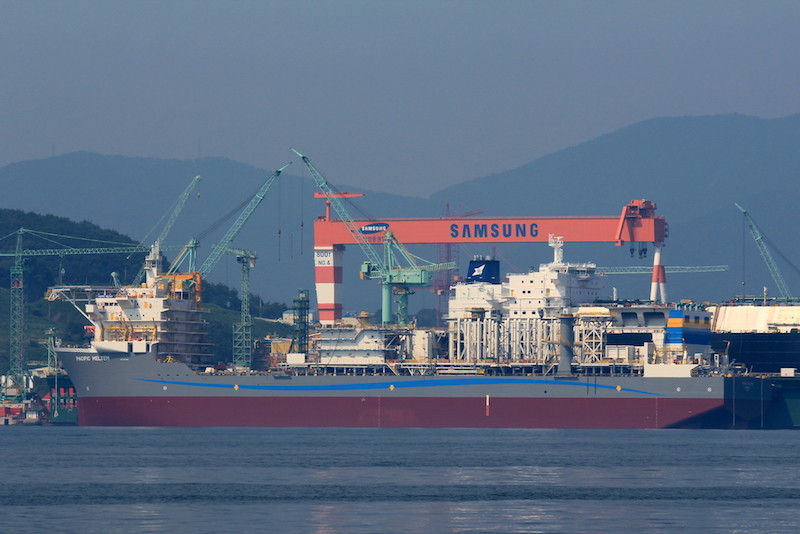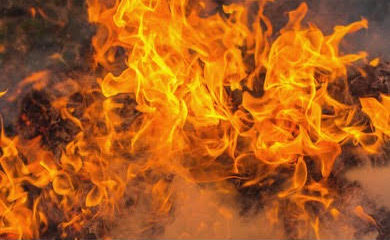International News
Again, Firefighter Dies In Canada Record-breaking Wildfires
As the nation battles its worst wildfire season on record, another firefighter has died in Canada.
Unidentified person died on Saturday after suffering injuries while putting out a fire in the Northwest Territories close to Fort Liard.
Devyn Gale, 19, was slain while working in nearby British Columbia just a few days prior.
Nearly 900 wildfires are currently burning across Canada, about 580 of which remain out of control.
So far this season, the fires have burned more than 10m hectares (24.7m acres) of land, according to the Canadian Interagency Forest Fire Centre.
The figure is higher than for any previous year on record and more than three times the average for the previous ten years.
On Sunday, Prime Minister Justin Trudeau said he was “incredibly saddened” by the news that a second firefighter had lost their life, and sent his condolences to their family.
Caroline Cochrane, premier of the Northwest Territories, said the death was a “tragic loss for the entire territory”.
“I extend my heartfelt condolences to their family, friends and colleagues,” she said.
“The bravery and selflessness of our firefighters is an incredible gift to us all. Thank you for your service to our territory and to our country.”
Ms Gale’s death was the first death on the ground since the start of Canada’s wildfire season – and reportedly the first in British Columbia since 2015.
Afterwards, Mr Trudeau said Canadians “must never forget the risks these heroes take every time they run toward the danger”.
“To firefighters… across the country who are doing just that to keep us safe: Thank you. We are inspired by your courage, and grateful for your service,” he said.
Climate change increases the risk of the hot, dry weather that is likely to fuel wildfires. The world has already warmed by about 1.1C since the industrial era began and temperatures will keep rising unless governments around the world make steep cuts to emissions.
According to estimates, Canada is warming twice as quickly as the rest of the world, and extreme weather events have become more frequent and intense in recent years.
As smoke is carried south over the eastern coast of North America, the wildfires have also prompted pollution advisories across the continent.
Devyn Gale, a teenage firefighter who died fighting wildfires in Canada, is seen in her uniform standing on a walkway on a mountainside. Her tongue sticking out.
International News
Niger Drops French, Declares Hausa As New National Language
In a bold move to redefine its national identity and sever ties with its colonial past, Niger’s ruling junta has officially adopted Hausa as the country’s national language, replacing French.
A new national charter, published in a special edition of the government’s official journal on March 31, stated: “The national language is Hausa” and “the working languages are English and French.”
READ MORE: Woodhall Capital Foundation Trains Nigeria’s Captains Of Industry
The decision is part of sweeping reforms introduced by the military government that took power in July 2023 after ousting President Mohamed Bazoum. Since then, the junta has taken deliberate steps to distance itself from France, including the expulsion of French troops and the renaming of streets and landmarks that bore French names.
Hausa is the most widely spoken language in Niger, particularly in the regions of Zinder, Maradi, and Tahoua. By contrast, French is spoken by only about 13 percent of the population—just over three million people in a country of 26 million.
The charter also designates nine other local languages—Zarma-Songhay, Fula, Kanuri, Gourmanche, Arabic and others—as the “spoken languages of Niger.”
The reforms stemmed from a national conference held in February, during which the junta was granted broader powers, including a five-year extension for General Abdourahamane Tiani to remain as head of state.
Niger, along with Mali and Burkina Faso—also under military rule—recently withdrew from the Organisation Internationale de la Francophonie (OIF), a cultural and political body representing French-speaking countries.
International News
Massive 7.7 Magnitude Earthquake Rocks Myanmar, Shakes Southeast Asia
A powerful 7.7-magnitude earthquake struck central Myanmar on Friday, shaking the region and sending tremors as far as Thailand and China.
The quake’s epicenter was located in the Sagaing region, near Mandalay, Myanmar’s second-largest city, home to around one million people and renowned for its historic temple complexes.
Panic erupted as buildings swayed and dust filled the air.
READ ALSO: Powerful 6.8-Magnitude Earthquake Hits China, Dozens Killed
In Mandalay, videos shared online showed terrified residents rushing out of residential towers while traffic came to a sudden halt.
Reports indicate that a major bridge spanning the Irrawaddy River collapsed into the water in a cloud of dust and debris.
The quake was felt as far as Bangkok, Thailand’s capital, where video footage showed a partially constructed building in Chatuchak Park crumbling to the ground.
Thai authorities reported that 43 people were trapped in the wreckage, while seven others sustained injuries.
In Chiang Mai, a resident described feeling the tremors for about ten seconds before fleeing into the streets.
In Myanmar’s commercial hub, Yangon—about 380 miles from the epicenter—residents also experienced the powerful shaking.
One resident recalled, “We felt the quake for about a minute, then ran out of the building.
It was very sudden and very strong.” Another noted that phone networks in the city, home to around 8 million people, briefly went down but were later restored.
Myanmar, one of Asia’s poorest nations, is already grappling with the effects of a brutal civil war sparked by a military coup over four years ago.
The conflict has devastated the economy, and the country remains ill-equipped to handle a major natural disaster of this scale.
The Sagaing region, where the earthquake struck, is a war zone with multiple factions—including the ruling junta, pro-military militias, and rebel groups—fighting for control.
The ongoing violence has made travel by road or river extremely dangerous, posing significant challenges to delivering emergency aid and assessing the full extent of the damage.
Tremors were also felt in China’s southwestern Yunnan province, underscoring the quake’s intensity.
Authorities across the region are now assessing the situation, with emergency teams mobilizing in both Myanmar and Thailand.
International News
Samsung Electronics Co-CEO, Han Jong-hee Dies At 63

Han Jong-hee, co-CEO of Samsung Electronics and a driving force behind the company’s dominance in the global television market, has died of a heart attack at the age of 63, the company confirmed on Tuesday.
“He died from cardiac arrest today,” a Samsung spokesperson stated, adding that Han is survived by his wife and three children.
Having joined the company in 1988, Han played a significant role in shaping Samsung’s television business.
READ MORE: Samsung Reports Worst Quarterly Profits In 14 Years
His leadership was instrumental in the launch and success of the company’s high-end LED TVs, which helped establish Samsung as a global leader in the industry.
“Han was central in the unveiling of Samsung’s world-class LED TVs,” the company noted in a biography published earlier this month. “His numerous other innovations enabled the company to continually demonstrate its technology leadership.”
His efforts ensured that Samsung maintained its position as a dominant force in the global television market.
Han’s death comes at a time when Samsung Electronics is grappling with challenges in the AI chip sector.
The company has been facing difficulties in meeting Nvidia’s standards, while its South Korean competitor, SK Hynix, has emerged as the leading supplier of high-bandwidth memory (HBM) chips for Nvidia’s AI processors.
Chairman Lee Jae-yong recently underscored the urgency of the situation, urging Samsung to adopt a “do-or-die” approach to overcome the growing challenges in the AI industry.
Last October, the company acknowledged it was facing a “crisis,” citing concerns over its “fundamental technological competitiveness and the future of the company.”
















